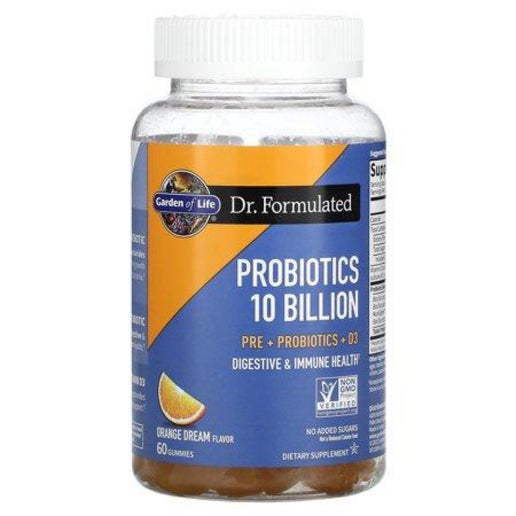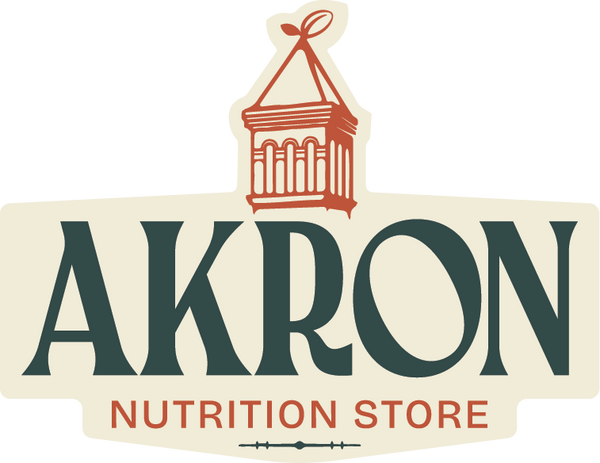
Top Gut Health Supplements for a Happier, Healthier Digestive System
Share
Key Takeaways
Gut health supplements can support gut health by promoting a balanced gut microbiome and improving digestion.
Probiotic supplements, prebiotic supplements, and digestive enzyme supplements are the main things you should be considering.
A healthy gut supports the immune system, mental health, and overall health, making gut health supplements a smart addition to your wellness routine.
Why Gut Health Matters More Than You Think
Science is quickly coming to the consensus that the digestive system plays a bigger role in overall health than previously thought. As such, maintaining a healthy gut is essential for everything from nutrient absorption to immune system support.
Poor gut health, driven by processed foods, poor sleep, and stress, can lead to a plethora of health conditions... digestive discomfort, weakened immune system function, abdominal pain, upset stomach, and even conditions like irritable bowel syndrome or leaky gut. Not to mention possible links to autism and mental health.
A growing body of research from institutions like the National Institute of Health highlights how dietary supplements can improve gut health and even support mental health and, particularly, women’s health.
Understanding the Gut Microbiome
The gut microbiome (also called the gut microbiota) is made up of trillions of gut bacteria and other beneficial microbes living in your digestive tract. Don't freak out! These are beneficial bacteria. They help absorb nutrients, regulate blood sugar, influence your nervous system, and are generally crucial for optimal gut health.
But there are also bad bacteria in the gut, the ones that don't actively help with nutrient absorption or are directly correlated with adverse mental health.
When the balance between good and bad bacteria in the gut is disrupted, you may experience symptoms of an unhealthy gut, such as digestive discomfort, bloating, and irregular bowel movements.
There's also a surprising relationship between your microbiota and your mental health. Studies have shown that disrupted gut biomes correlate with anxiety, depression, and other conditions. Even autism is now being linked to gut health.
So you can see why people are so interested in taking probiotics and prebiotic supplements that can help restore and maintain balance.
Top Health Supplements For a Healthy Gut
Probiotic supplements deliver live bacteria to the gut, supporting digestive health and the immune system. They contain beneficial bacteria like Lactobacillus and Bifidobacterium, which have been shown to treat IBS and reduce IBS symptoms, abdominal pain, and bloating.
Enteric-coated capsules help ensure that probiotic supplements survive the digestive process and reach the intestine intact. These dietary supplements are especially helpful when poor gut health is caused by antibiotics, processed foods, or poor lifestyle habits.
Adding probiotic-rich foods, such as yogurt or kefir, can further support gut health. But for many, high-quality probiotic supplements are a more consistent and potent solution.
Probiotic caps like this one are often vegetarian and you only need to take one daily. If you prefer them, there are also deliciously flavored probiotic gummies with the same bacteria.
What Are Prebiotic Supplements? Feeding the Good Bacteria in Your Gut
While you've probably heard about probiotics, these are a different thing altogether. Prebiotic fiber is food for the good bacteria in your gut. Without it, even the best probiotics won’t thrive. Prebiotic supplements provide the fuel beneficial microbes need to multiply.
You can find prebiotics in high-fiber foods such as root vegetables, whole grains, and legumes. But most diets fall short. Prebiotic supplements offer a concentrated dose to improve gut health and support the digestive tract.
You'll often find prebiotic-probiotic mixes, but there's also prebiotic-only soluble fiber you can just dissolve in your coffee if you don't like taking capsules.
Fiber intake is crucial here. Fiber-rich foods not only support bowel regularity but also nurture gut bacteria, making prebiotic supplements essential if you're not getting those nutrients from other foods in your diet.
Digestive Enzymes, or How To Help Your Body Absorb Nutrients
Digestive enzymes play a vital role in breaking down food so the body can absorb nutrients properly. Low enzyme production — common with age, stress, or conditions like cystic fibrosis — can result in digestive discomfort and poor nutrient absorption. Basically, you won't thoroughly digest food.
Digestive enzyme supplements, such as blends containing bromelain, lipase, and amylase, (these are all digestive enzymes) help improve digestion, especially after rich foods. While you probably don't need them if you have a varied diet, they’re particularly useful if you experience bloating, gas, or abdominal pain after eating.
These dietary supplements are often used alongside probiotics to support the entire digestive process. And because they're regulated by the FDA as food products, they're widely available and safe when used appropriately.
They come in a bunch of different shapes and prices, but capsules such as this one are often the most affordable.
What's The Gut Lining And Why Does It Matter?
Your gut is lined with a layer of tissue that acts like a mesh, letting certain compounds pass into your bloodstream. The ones that don't continue down the tract. A leaky gut is a condition whereby your gut lining lets stuff through that can potentially harm you.
L-glutamine is one of the key amino acids the body uses to repair the gut lining. As such, it is especially beneficial for those with a leaky gut or ongoing digestive discomfort. Clinical research shows that L-glutamine can help reduce intestinal permeability in a relatively short time.
These supplements are often recommended by registered dietitian nutritionists and other healthcare professionals as part of an integrative health plan. If you think they might help you, you should always consult a professional first.
We sell both capsules and L-glutamine powder (we forgot to mention there's a 10% discount on both if you get our monthly subscription!)
Better Gut Health Through Diet and Lifestyle Habits
While gut health supplements are powerful, a well-rounded diet is also crucial. Eating fermented foods like sauerkraut, miso, and kimchi provides live bacteria to strengthen the gut microbiome. But you don't have to pig out on ethnic food to improve your gut health.
Other supportive choices include:
High-fiber foods like oats, beans, root vegetables, and whole grains
Fermented foods that are rich in beneficial bacteria and help improve digestion
Avoiding certain foods such as heavily processed foods that feed harmful bacteria
Lifestyle Choices Come First
None of these supplements will harm you, even if you don't need them. Even if you don't plan on taking them for too long, supplements could still help you as you try to include more foods into your diet.
All in all, the potential health benefits of a balanced gut microbiome are immense. From absorbing nutrients more effectively to treating IBS and avoiding abdominal pain. But supplements shouldn't become an excuse to keep eating a diet that might harm you down the line.
Finally, if you're really going through it with gut issues or a digestive tract condition, talking to a healthcare professional should always be your first priority.
